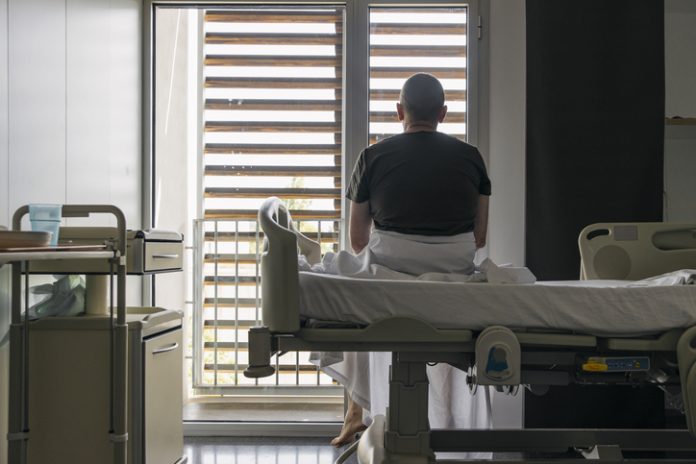In-patient mental health and drug abuse facilities across the country are holding patients involuntarily, now aided by a new Biden administration rule requiring insurers to cover the treatment equally with other hospital care.
An investigation by the U.S. Department of Justice alleges some in-patient facilities for psychological or drug abuse problems fraudulently kept people hospitalized to maximize reimbursements from government health programs, according to The New York Times (Times).
“Acadia Healthcare, a nationwide chain of psychiatric hospitals, faces new federal charges after it just agreed to a nearly $20 million settlement over accusations it defrauded government health insurers by holding patients longer than necessary,” states a Times article published on September 27.
ER Patients ‘Locked In’
Some of Acadia’s patients were held involuntarily in the first place, the Times reports.
“In at least 12 of the 19 states where Acadia operates psychiatric hospitals, dozens of patients, employees and police officers have alerted the authorities that the company was detaining people in ways that violated the law, according to records reviewed by The Times,” states the article. “In some cases, judges have intervened to force Acadia to release patients.”
This included individuals who did not consent to treatment, the Times reports.
“Some patients arrived at emergency rooms seeking routine mental health care, only to find themselves sent to Acadia facilities and locked in.”
Second Opinion Needed
The providers who determine whether a patient should be hospitalized or treated on an outpatient basis have a financial stake in those treatment decisions, says Linda Gorman, director of the Healthcare Policy Center at the Independence Institute in Colorado.
“The problem with mental health [care] is that conditions generating payment are defined by a majority vote of the self-interested,” said Gorman. “And so much of ‘treatment’ is ineffective and even may make things worse. Dropout rates for drug treatment are so high that many of the formal studies are uninformative.”
Obamacare Parity Rule
Private insurers and health plans are required to provide equal coverage, or parity, for psychological and physical problems, under a series of increasingly exacting federal regulations covering annual and lifetime limits on benefits, narrow provider networks, and prior authorization requirements for treatment.
The U.S. Departments of Labor, Justice, and Health, and Human Services published a final rule implementing provisions of the Mental Health Parity and Addiction Equity Act (MHPAEA) of 2008, which were expanded by the Patient Protection and Affordable Care Act and the Health Care and Education Reconciliation Act of 2010, popularly called Obamacare, on September 9.
According to the Biden administration, the final rule bars health plans from using more restrictive prior authorization rules for mental health care than other care.
“[H]ealth plans need to evaluate their provider networks, how much they pay out-of-network providers, and how often they require—and deny—prior authorizations,” states a White House factsheet published on September 9.
‘Costly Compliance Hurdles’
Though mental health advocates applauded the parity rule, insurers are more cautious, Pamela Greenberg, president and CEO of the Association for Behavioral Health and Wellness, which includes mental health care plans such as Aetna, Optum, and Centene, said in a press statement.
“We are concerned that provisions in the final rule, such as the material difference standard and meaningful benefits provisions, go beyond the law’s intent and will create costly compliance hurdles that may negatively impact affordability and access to mental health and substance use disorder care,” Greenberg said, MedPage Today reported on September 12.
Mental Health Is Different
Underlying parity is the costly and mistaken idea that psychological problems are always equivalent to medical conditions, says Gorman.
“We need to stop pretending that mental health and physical health are the same, stop funding self-interested research, and take a hard look at redefining what types of mental health conditions are serious enough to deserve taxpayer funding,” said Gorman.
The benefits of medical care differ from those received from other therapies, depending on the patient’s condition, says Gorman.
“Most people do not like treatments for physical ailments and so have an incentive not to overuse it,” said Gorman. “Mental health has different incentives because many people, especially adolescent girls, like the individualized attention that goes with diagnosis and talk therapy treatment. Schizophrenics, on the other hand, typically do have an identifiable physical illness, and often try to avoid treatment.”
Joe Barnett (joepaulbarnett@att.net) writes from Arlington, Texas.
For related articles, click here.





















